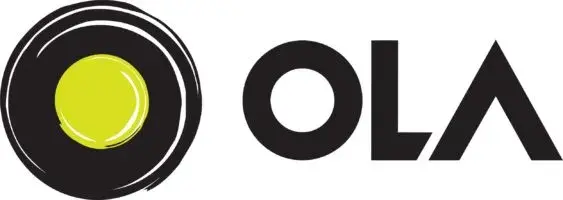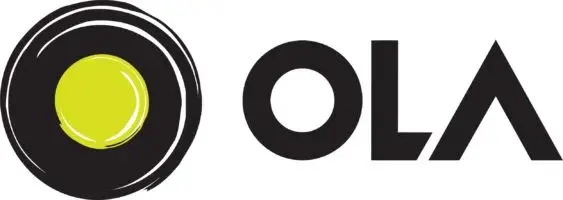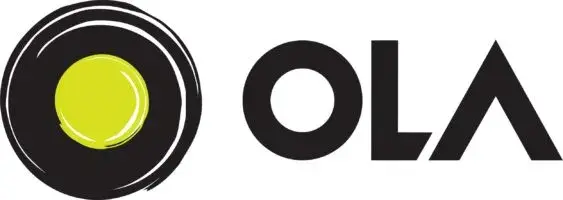India: Govt. to restrict use of terms like ‘fresh and natural’ in food ads
Ministry of Health has proposed comprehensive changes in the law to restrict the use of terms like fresh, natural, traditional, original, and other terms in advertisements for food products.
India: MNCs not tax liable for Routine Operations
 The Central Board of Direct Taxes brought a sigh of relief for the Multinational Companies in India by clarifying that such entities are not liable to pay taxes with regards to the conduct of routine functions such as pay roll, accounting HR, IT.
The Central Board of Direct Taxes brought a sigh of relief for the Multinational Companies in India by clarifying that such entities are not liable to pay taxes with regards to the conduct of routine functions such as pay roll, accounting HR, IT.
India: Ola cabs and allegations of its abuse of dominant position
 Ola cabs was allegedly accused of abusing its dominant position in the market by way of predatory pricing, for which an order was passed by the Competition Commission of India, which lays down the procedure for inquiry on complaints which further talks about inquiry into certain agreements and dominant position of enterprises in the market.
Ola cabs was allegedly accused of abusing its dominant position in the market by way of predatory pricing, for which an order was passed by the Competition Commission of India, which lays down the procedure for inquiry on complaints which further talks about inquiry into certain agreements and dominant position of enterprises in the market.
S. S. Rana & Co., celebrates Indian Constitution Day with much Enthusiasm
In light of the celebrations around the country, S. S. Rana & Co., as a part its employee engagement programme, conducted a Quiz Competition in their offices!!
India: Govt. to restrict use of terms like ‘fresh and natural’ in food ads
Introduction
Food Safety and Standards Authority of India, Ministry of Health and Family Welfare (hereinafter referred to as the “Ministry”) released a draft notice calling for suggestions, views, comments, etc., from stakeholders on the draft “Food Safety and Standards (Advertisements and Claims) Regulations, 2017” (hereinafter referred to as the “Regulations”).
The Ministry vide the said regulations has proposed comprehensive changes in the law to restrict the use of terms like “fresh”, “natural”, “traditional”, “original” and other terms in advertisements for food products.
Use of Certain word/phrases
- Natural/ Real/ GenuineSuch word may be used to describe a single food derived from a recognized source such as plant, animal, microorganism or mineral and to which nothing has been added. Further it may be subjected only to such processing which would only make it suitable for human consumption like:
- smoking without chemicals, cooking processes such as roasting, blanching and dehydration;
- freezing, concentration, pasteurization, and sterilization; and
- packaging done without chemicals and preservatives.
Such word may even be used to describe Permitted food additives that are obtained from natural sources (e.g. plant by appropriate physical processing). Compound foods shall not be described directly or by implication as “Natural”. Such foods may be described as “made from natural ingredients”. Words such as “natural goodness”, “naturally better”, and “nature’s way” shall not be used.
Such regulations for the word “Natural” shall also apply to use of other words such as “Real” and “Genuine”, when used in place of “Natural “in such a way as to imply similar benefits.
- Fresh
Such term shall only be used on products which have not been processed in any manner except, which are washed, peeled, chilled, trimmed or cut, or other processing necessary for making the product safe for human consumption without altering its basic characteristics in any manner.A food containing additives and/or subjected to packaging, storing or any other supply chain processes that control freshness shall not be termed as “freshly stored”, “freshly packed” etc.
- TraditionalSuch term shall only be used to describe a recipe, a fundamental formulation or a processing method for a product that has existed for a significant period running over generations, and should have been available substantially unchanged for that same period.
- OriginalSuch term shall only be used to describe a food that is made to a formulation, the origin of which can be traced, and that has remained essentially unchanged over time.It should not contain replacements for major ingredients. It may similarly be used to describe a process, provided it is the process first used in the making of the food, and which has remained essentially unchanged over time, although it may be mass-produced.
- PureSuch term shall only be used to describe a single ingredient food to which nothing has been added and which is free from avoidable contamination. The levels of unavoidable contaminants shall need to be significantly below the levels given in the Food Safety and Standards (Contaminants, Toxins and Residues) Regulations, 2011.Compound foods shall not generally be described, directly or by implication, as “pure” but such foods may be described as “made with pure ingredients”.
- Premium/ Finest/ Best/ Authentic/ Genuine/ RealSuch terms may be used only if the label or advertisement clarify in what way the overall quality is tangibly justified and why the particular term has been used.The draft further highlights as follows that:-
- No promotion of sale, supply, use and consumption of articles of foods shall be made using FSSAI logo and license number.
- Advertisements shall also not undermine the importance of healthy lifestyles.
- Advertisements for food or beverages shall not be promoted or portrayed as a meal replacement.
- Claims in advertisements shall not be inconsistent with information on the label or packaging of the food or beverage.
India: MNCs not tax liable for Routine Operations

Source : www.incometaxindia.gov.in
The era of globalization has brought together the people to work jointly thereby benefiting each other by increasing transfer of knowledge and technology. This interdependence coupled with harmonization with the world statistical standards by the means of Multi-national Companies (hereinafter referred to as “MNCs”) has given the Indian economy a major boost in covering its path of development.
The Central Board of Direct Taxes (hereinafter referred to as “CBDT”) vide notification on 23rd October, 2017 brought a sigh of relief for the Multinational Companies operative in India. It laid down clarification related to guidelines for establishing ‘Place of Effective Management’ (hereinafter referred to as “PoEM”). Many MNCs raised their concerns after the issue of guiding principles for determination of PoEM dated 24th January, 2017 seeking elucidation on the aspect of consideration of their regional headquarters in India as PoEM.
The CBDT explained that where the Board of Directors of the company are standing aside and not exercising their powers of management and such powers are being exercised by either the holding company or any other person(s) resident in India, then the PoEM shall be considered to be in India.
The clarification guidelines clearly state that the Regional Headquarter operating for subsidiaries/ group companies in a region complying as per the general and objective principles of global policy of the group laid down by the parent entity conducting routine functions would not per se be a basis for establishment of PoEM for such companies. The functions of routine nature include Pay roll functions, Accounting, HR functions, IT infrastructure and network platforms, Supply chain functions, routine banking operational procedures, and not being specific to any entity or group of entities.
Conclusion
The progressive effort of the CBDT in spelling out the polices relating to PoEM has led to better understanding of the taxation aspect in this regard. It motivates the MNCs to carry out functions of routine nature without the threat of being scanned under the tax ambit.
India: Ola cabs and allegations of its abuse of dominant position

Source : www.olacabs.com
Introduction –
Over the past 5-6 years, India has witnessed tremendous growth in the “taxi industry”. One can rightly say that this growth is due to the entry of online transportation companies, in the capacity of aggregators. There are two popular companies under this category. They are –
- Ola, an Indian company, owned by ANI Technologies Pvt. Ltd.
- Uber, a global company headquartered in San Francisco, California, United States, owned by Uber Technologies Inc.
The emergence of these two companies has shaped the taxi/cab industry with never seen before cheap fares and discounts to the customers while offering incentives to the drivers as well. Ola and Uber follow a business model known as the aggregator model, which means that the companies do not own the radio cabs but only acts as an aggregator (platform) that connects the drivers with the prospective consumers.
Due to the mode in which these companies chose to operate their business, as mentioned above, by offering lower fares, discounts to customers and incentives to the drivers, it has come to the attention of companies operating under the asset-owned model, i.e., service providers who own the radio taxis themselves, that their business has taken a deep dive since the operation of Ola and Uber, fearing an ouster from the market.
To bring matter into perspective, let us take reference of a case law in which Ola cab was allegedly accused of abusing its dominant position in the market by way of predatory pricing, for which an order was passed on July 19, 2017, under Section 26 (6) of the Competition Act, 2002 (the Act), which lays down the procedure for inquiry on complaints under section 19 which further talks about inquiry into certain agreements and dominant position of enterprises in the market.
Background of the case –
In this case, Fast Track Call Cab Pvt. Ltd. and Meru Travel Solutions Pvt. Ltd. (the ‘Informants’) had filed information, separately, under Section 19(1) (a) of the Competition Act, 2002 (the ‘Act’) against ANI Technologies (the ‘Opposite Party’/‘OP’) alleging contravention of the provisions of Section 4 (2) (a) (ii) of the Act, which talks about abuse of dominant position by imposing unfair or discriminatory price. Since the allegations were similar in both the cases, the Commission decided to club the matters for the purposes of investigation and final disposal.
In the above case, the informants had made an allegation that since entering the market for services of radio taxi in Bengaluru, Ola had abused its dominant position due to its increased share in the market which accounted to more than 50% in the taxi industry. It was the argument of the informants that due to its market share and huge capital, Ola was able to shell out low fares and discounts to the customers while giving attractive incentives to the drivers as well. The informants further stated that they could not afford to apply the same business system which proved to be detrimental for their business.
Findings of the Director General –
The Commission thereafter directed the Director General (DG) to take up the matter and submit an investigation report. After thorough observation and due consideration, the DG noticed that Ola’s market share was challenged by Uber rapid and fast growth in the market. It was noted by the DG that in the first six months of 2015-16, while Ola’s share in the market increased marginally by 2% to 3%, Uber’s share increased at a rate of 20% to 22%. As per a recent survey of the market share statistics by Kalagato Pte, the market share of Uber has grown by 50% in the six months to June, 2017, while Ola’s share has grown by 44.2%. The DG opined that for a player to have a dominant position in the relevant market, it should be able to hold its market share for a reasonable period of time. In this case, Ola’s share started declining as Uber entered the relevant market almost three years after Ola’s entry.
Findings of the Commission –
After looking into the observations and findings of the DG in detail, the Commission gave an exhaustive observation and finding of its own. The Commission does not fully disagree with the Informants that the low prices of Ola are not because of cost efficiency, but because of the funding it received from private equity funds. Hence, the Commission stated that no evidence could be established to show that such funding was not competitive and inequitable. It was in fact their penetrative pricing strategy that facilitated them to garner high market shares in short span of time.
Therefore, the Commission closed the case stating that the evidence on record did not establish the dominance of Ola in the market and its consequent abuse within the provisions of Section 4 of the Act.
Conclusion –
It is abundantly clear from the above case that the Government in today’s world endorses fast growth and high competition in the business industry, not only the taxi industry. This order passed by the Competition Commission of India reaffirms that economic development is at the forefront of the Government’s agenda. The taxi market through the aggregator model in India like the ones followed by Ola and Uber is still at a very nascent stage and demands time to fully develop its pricing strategy as stated by the Commission in its order. But our country has definitely come a long way from the only available option of hailing a black and yellow cab or auto rickshaws on the streets to the luxury of booking a cab through a smartphone. However, it would be wise for the concerned authorities and Government to draw up a course of action and plan for the small and traditional players in the market in order for them to survive and continue to add to the development of the economy as a whole.
—————————————————-
[1] http://www.financialexpress.com/industry/uber-india-market-share-jumped-
S. S. Rana & Co., celebrates Indian Constitution Day with much Enthusiasm
“Constitution Day, also known as Samvidhan Divas, is celebrated in India on 26 November every year to commemorate the adoption of Constitution of India. On this day in 1949, the Constituent sAssembly of India adopted the Constitution of India, and it came into effect on 26 January 1950”.
In light of the celebrations around the country, S. S. Rana & Co., as a part its employee engagement programme, conducted a Quiz Competition in their offices!!


